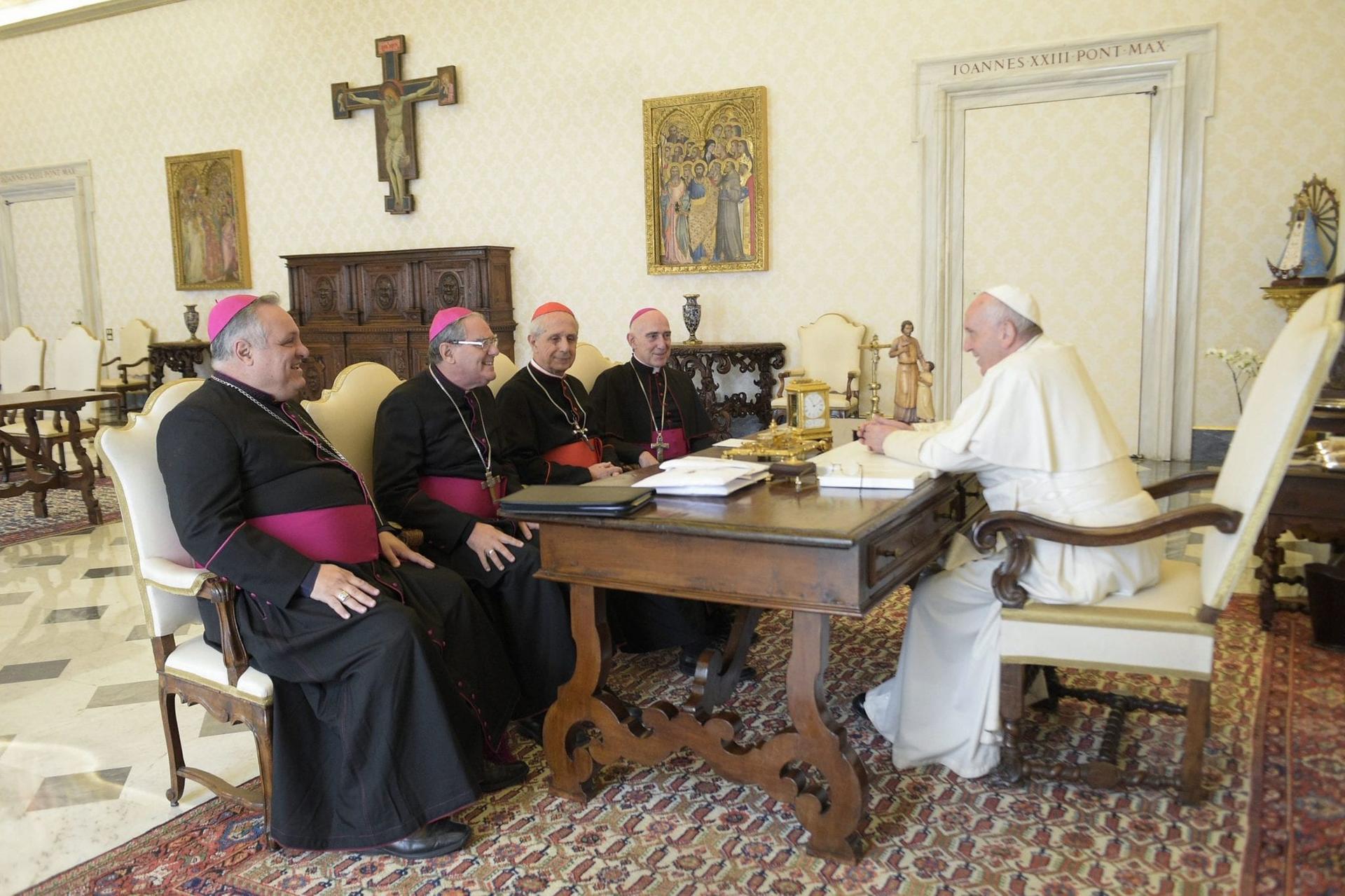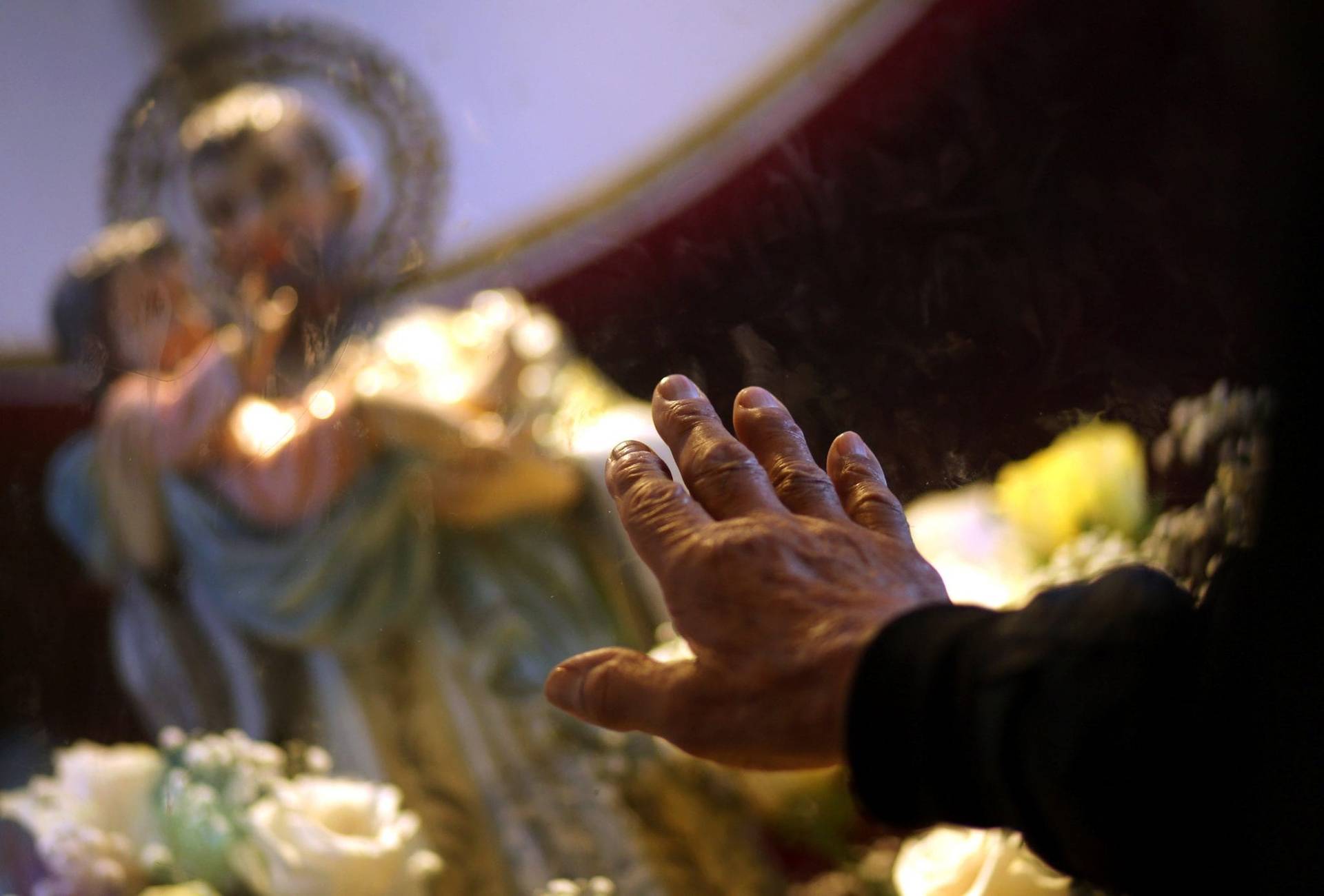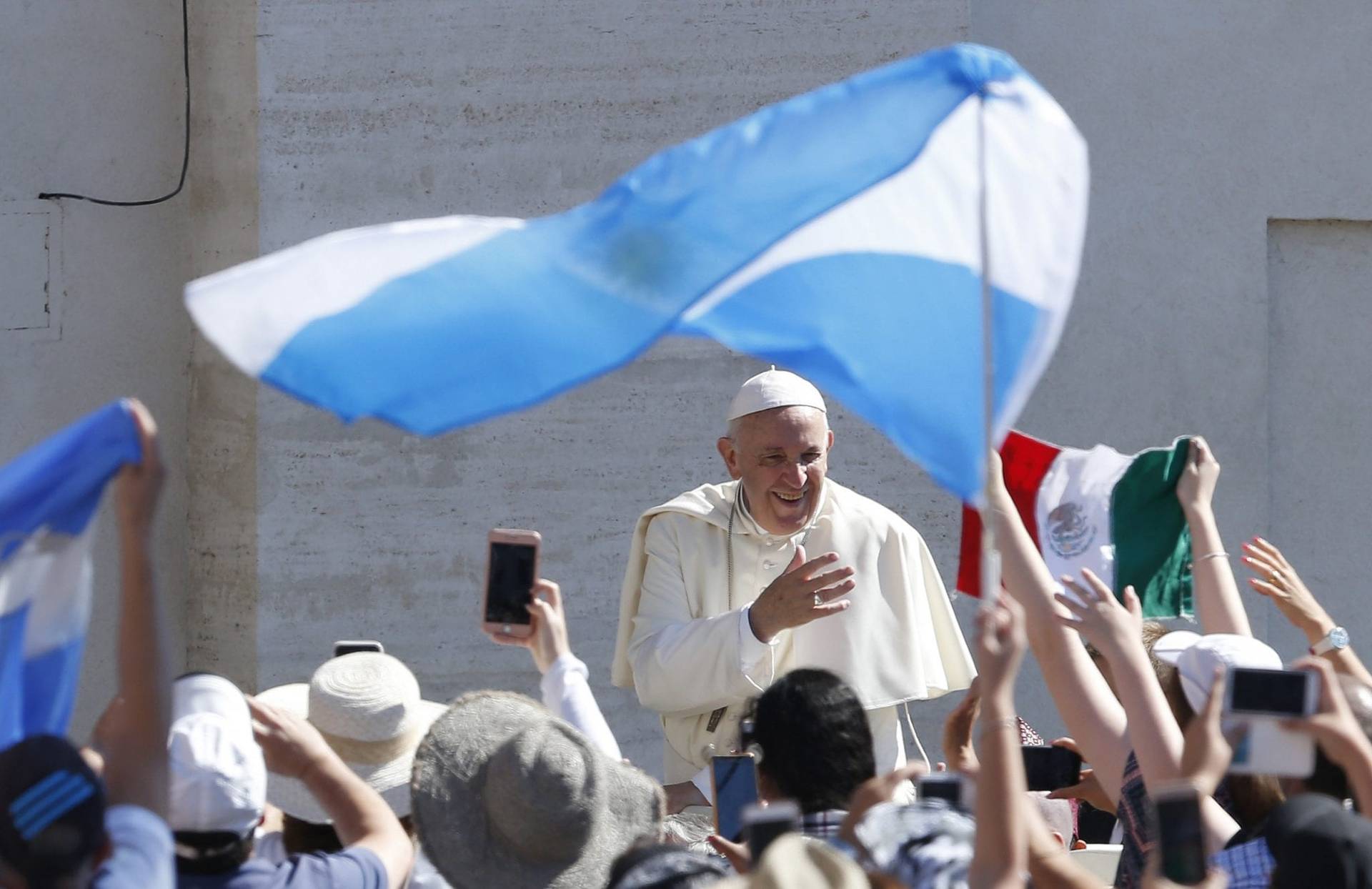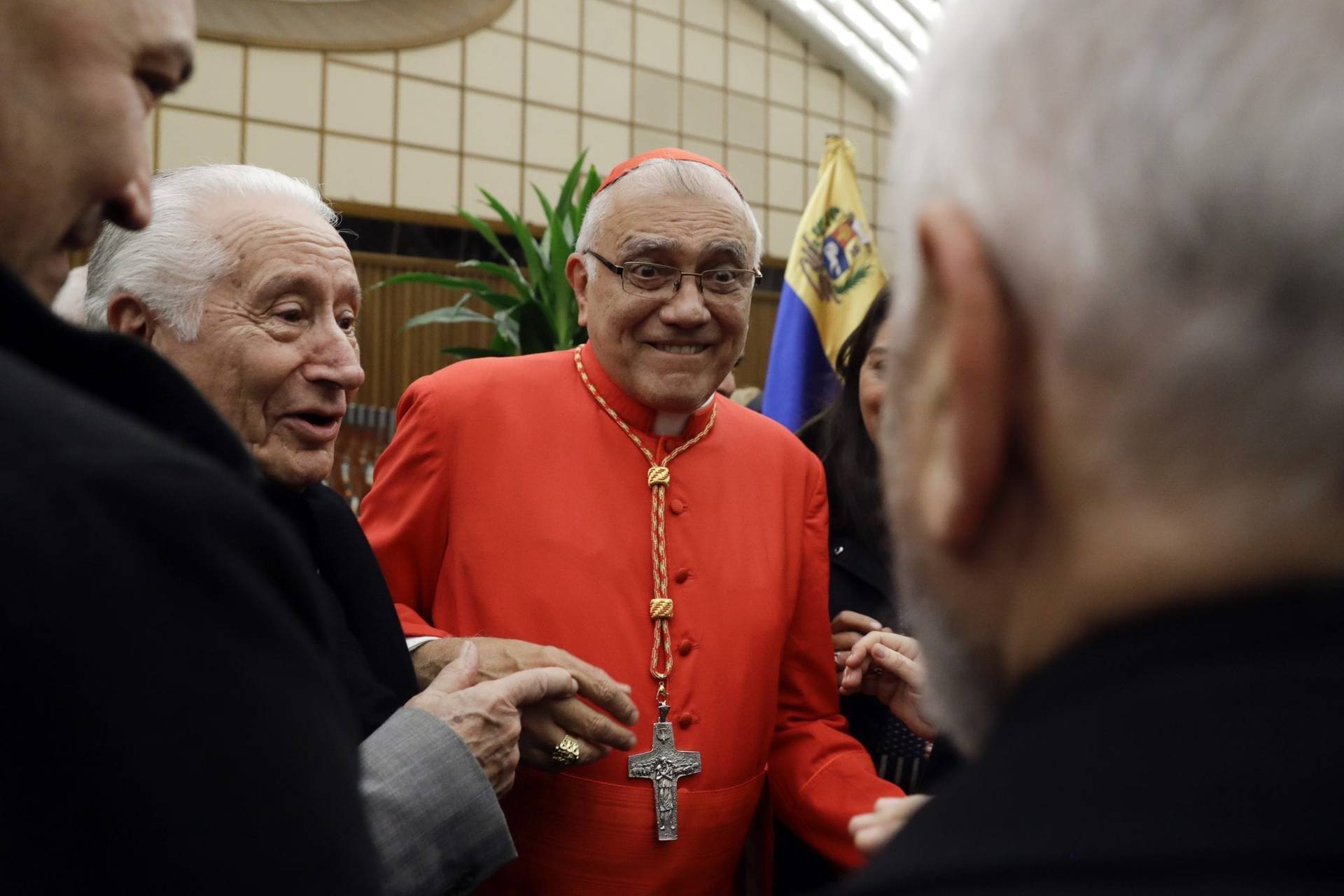ROSARIO, Argentina – Argentinian society today is deeply divided. Particularly visible in Buenos Aires, where newsstands sell colorful handkerchiefs representing various causes — pro-life and pro-choice, pro-Church and anti-clerical — the reality of this division transcends the capital city.
Despite the highly-charged rhetoric, Archbishop Marcelo Colombo of the northern city of Mendoza and vice president of the national bishops’ conference, believes that the Catholic Church can be a “bridge” encouraging dialogue among society’s different spheres.
This dialogue, he told Crux, must be “rooted in some values or criteria that are essential, such as fraternity, inclusion and the need to be at the service of the smallest, most fragile among us all.”
Colombo heads an archdiocese that faces one of the biggest clerical abuse scandals in Pope Francis’s country, that of the Provolo institute.
Before Colombo was appointed to Mendoza, a dozen people from the Catholic school for deaf and mute children were already under scrutiny and the case was being investigated by authorities.
RELATED: Demand for trial against clergy accused of abusing Argentinian deaf kids
However, since the case is currently active, it was agreed before the interview that the issue wouldn’t be discussed to avoid influencing the outcome.
What follows are excerpts of Colombo’s conversation with Crux.
Crux: When you were appointed as Archbishop of Mendoza almost a year ago, after being in La Rioja, you said that you wanted to have one ear to the Gospel and one to the people. What have you learned from the people of Mendoza since then?
Colombo: That this is a diocese characterized by a deep faith, by a deep Marian faith, illuminated by the leadership of some exemplary priests and with an enormous pastoral zeal. I have also learned that it’s an incredibly generous society, an attitude inspired by the faith of the people here.
Society in Argentina today is very divided, for different reasons: From economic inequalities to ideological issues. What can the Church do to contribute to reducing that division?
Encourage dialogue, be a bridge, as Pope Francis asks us to be, trying to ensure that all voices are heard, rooted in some values or criteria that are essential, such as fraternity, inclusion, and the need to be at the service of the smallest, most fragile among us all. The Church can also contribute by calling for a more effective inter-generational dialogue and fighting the throwaway culture that leaves people at the margins of the system.
RELATED: ‘Argentina’s Romero,’ three more casualties of ‘Dirty War’ to be beatified
You played a key role in the beatification case of the Martires Riojanos, Bishop Enrique Angelelli, Fathers Carlos de Dios Murias and Gabriel Longueville, and layman Wenceslao Pedernera. Pope Francis called you personally to tell you that he had signed the decree declaring them martyrs. Yet there are many in Argentina who don’t agree. Why?
This recognition of martyrdom and the subsequent beatification was great news for the Argentine Church. It’s a gift from God to the Church, to be able to see the blood they shed recognized by the highest authorities of the Church, in this case the pope.
Their blood was shed for love. They surrendered themselves to Jesus, their brother. I think that there’s a vast group of people who are unable to see this, because they continue to have a determined historical view preceded perhaps by ideological prejudices.
RELATED: Argentina’s version of Romero declared martyr by Pope Francis
Did you ever doubt that these four men were martyrs?
No. When I arrived in La Rioja, I only knew about the life of Monsignor Angeleli. But I got to know the other martyrs and appreciated the significance of their lives afterwards. I got to know their writings, the testimonies of the people who knew them, and in the case of Wenceslao, through his family. They revealed that he was an exemplary man, who gave himself to the Gospel and led a simple life of holiness from the moment he encountered Jesus.
In recent years, Argentina went from being a country without any officially recognized saints who’d been born and died in Argentina, to having a saint, Father Jose Brochero, known as the “Gaucho saint,” four martyrs and several religious and a lay woman – Mama Antula – recognized as “blessed.”
This is the fruit of the hard work of canonists and diocesan commissions, that began their work long before Pope Francis’s election in 2013. The cause of the Cura Brochero was opened in 1961, and the proclamation of beatification was made by [Pope emeritus] Benedict XVI, and then the celebration was carried out by Francis.
Fundamentally, the grace of these recognitions must provoke in us a view of holiness as a possible ideal of life, inspire us to seek by all means to identify through these men and women a call from God to transform our life for love.
Argentines seem to have many superficial discussions about Pope Francis, often based on small aspects of his ministry, like whom he takes a picture with. Why?
There is a superficiality in the approach of the figure of the pope, an inability to see beyond a series of mean political calculations by some, and probably, there is also the action by some communicators who have focused on some details, rejecting others that are more significant or deeply rooted in the Gospel.
We are at a time when one of us [Argentines] is serving the universal Church in an extraordinary way, with an ability to read the signs of the times and to propose to Christians of all latitudes an interpretation of the Gospel that is in accordance with the current challenges.
Do you see distinctive features of the Argentine Church in Pope Francis and his ministry?
Obviously, he is very marked by his experience as a pastor in Argentina: His simplicity, his sensitivity, his directness; also speaks to this relationship with us and what it means for the Argentine Church to address the problems by name and try to address them as Christians.
As a bishops’ conference, you were in Rome last May, meeting with the pope and the heads of the various Vatican offices for the ad liminia visit. The pope told all three groups of Argentine bishops that he wants to come to Argentina in the near future. Do you believe him?
Yes of course! I understand that now it’s simply a matter of agenda. But he’s eager to reencounter with his people; the sensitivity to organize it is there.
Follow Inés San Martín on Twitter: @inesanma
________________________________________________
Crux is dedicated to smart, wired and independent reporting on the Vatican and worldwide Catholic Church. That kind of reporting doesn’t come cheap, and we need your support. You can help Crux by giving a small amount monthly, or with a onetime gift. Please remember, Crux is a for-profit organization, so contributions are not tax-deductible.

















